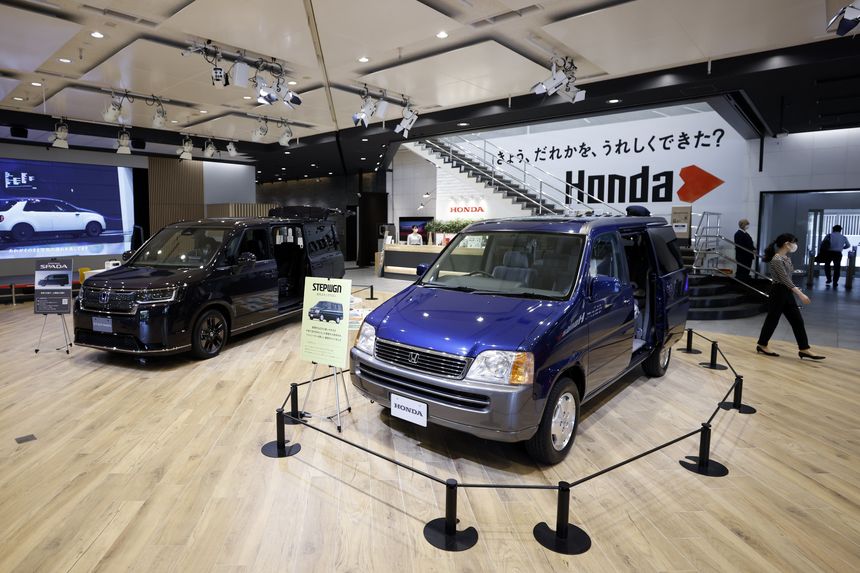
The companies said they plan to begin construction of the factory early next year and start mass production by the end of 2025. The factory is planned for Ohio, the same state as Honda’s longstanding auto plant in Marysville, people familiar with the matter said. The companies didn’t name the location.
The U.S. plant represents the first major investment Honda has made in building out its own EV battery supply chain since announcing plans to go all-electric a little over a year ago. The Japanese auto maker is targeting a full switch to EVs and fuel-cell cars by 2040.
Honda has been slower to roll out EV models than peers in the U.S. and Europe. It doesn’t offer a mass-market EV model for U.S. consumers yet, while Korean rivalHyundai MotorCo.has already introduced mass-market EVsfor American car buyers this year under its Hyundai andKiabrands. Another direct Honda competitor,VolkswagenAG, is sellingthe ID.4 electric crossoversport-utility vehicle.
In April, Honda said it planned to hasten its EV push by spending 5 trillion yen, equivalent to $36 billion, on battery-powered cars over the next decade. The auto maker plans to roll out 30 electric models by 2030 andis pairing upwithGeneral MotorsCo. andSony GroupCorp.to develop them.
“The key challenge in the EV era is the global procurement of batteries,” Honda Senior Managing Executive OfficerShinji Aoyamasaid at a briefing in April. He said Honda would start out working with partners but hoped to put more emphasis on developing batteries independently by the latter half of this decade, which he said would be the “the dawn of the popularization of EVs.”
Honda andLGsaid they wanted their plant to produce 40 gigawatt-hours of batteries annually. That would be enough for more than 700,000 vehiclesbased on the International Energy Agency’s estimatethat the average EV’s battery capacity in 2021 was 55 kilowatt-hours.
With their U.S. plant, Honda and South Korea’s LG Energy join a growing roster of joint ventures between car makers and battery suppliers planning new factories.
Over the past year,GM and LG Energy, as well asStellantisNV andSamsung SDICo., have said they plan to team upto build multibillion-dollar plantsin the U.S.
President Biden has pushed car companies to bring more battery manufacturing to North America. To get a tax break under the recent U.S. climate and healthcare law, EV models must have a certain value of their battery components assembled in the region.
With battery prices surging on the back of rising demand andskyrocketing raw material costs, auto makersare likely to opt for more tie-upswith battery makers and others to achieve economies of scale, according to S&P Global Ratings.
Some of the biggest battery makers are also moving to expand capacity on their own.TeslaInc. supplierPanasonic HoldingsCorp. is looking at buildinga $4 billion EV battery plant in Oklahomaafter disclosing plans in July for a plant of similar size in Kansas.
LG Energy controls about 20% of the EV battery market by units sold, according to SNE Research, a South Korean firm. It has signed joint-venture agreements with GM, Hyundai and Stellantis in addition to Honda. The lithium-ion battery developerraised $10.8 billion in Januarywhen it listed its shares on South Korea’s stock market, a record for the country.
S&P Global Ratings expects China’sContemporary Amperex TechnologyCo., LG Energy and Panasonic collectively to retain more than 50% of the market share for EV batteries through 2025.
Comments